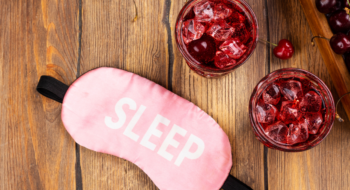When it comes to advice for managing your weight, it can be hard to separate fact from fiction.
Does drinking a concoction of maple syrup and cayenne pepper in place of meals really help you lose weight? Should you eat cabbage every meal? What about adding butter to your coffee – does that actually work?
Tidelands Health family medicine physician Dr. Vasudha Jain, who practices at Tidelands Health Family Medicine at Holmestown Road, says unorthodox plans to maintain or lose weight generally don’t work, and they can actually be dangerous to your health.
Instead of opting for quick-fix schemes, Dr. Jain says to look for a weight-management strategy that’s sustainable and backed by evidence-based research.
“There are lots of ideas out there,” Dr. Jain says. “But it’s important to evaluate the science behind them to determine how and why the strategy works.”
Important for health
For example, research has shown that eating a moderate amount of nuts every day is a great way to help maintain or lose weight while improving overall nutrition.
“Replacing sugary snacks with a handful of almonds or pecans is a simple strategy that can prevent gradual weight gain and aid in weight loss,” Dr. Jain says. “Nuts offer tons of nutrients and antioxidants as well as healthy fats and fiber, which can help keep you feeling full.”
Maintaining a healthy weight is important for overall health, Dr. Jain says, because it can help reduce your risk for a broad range of conditions, including:
• Heart disease
• Diabetes
• Stroke
• Some cancers
• Arthritis
• Gallstones
• Asthma
• Sleep apnea
“As we age, it can become harder to keep the pounds off. Adults tend to gain 1 to 2 pounds each year, so finding effective ways to keep your weight in check becomes especially important,” she says.
In addition to eating nuts, here are 10 more tips that can help manage your weight:
1. Drink water before meals
People who used this strategy lost more weight than those who didn’t. Thirst often masks itself as hunger, causing you to eat more than you should. Additionally, drinking water beforehand makes you feel fuller so you eat less during the meal.
2. Move often
Physical activity and movement are key to preventing weight gain and maintaining good cardiovascular health.
3. Be selective when eating out
The average restaurant meal totals more than 1,000 calories, but nutritional information is often not printed on menus. Look for ways to lessen your caloric intake when dining out. Split a meal or substitute starchy side dishes with a green salad.
4. Stay hydrated
In addition to drinking water before meals, it’s important to stay hydrated throughout the day. Increasing your water consumption will boost your metabolism by as much as 30 percent, which can help you burn extra calories as you go about your day.
5. Eat protein for breakfast
Research has shown that replacing a grain-based breakfast like oatmeal or muffins with protein, specifically eggs, will cause you to eat fewer calories for the next 36 hours. You’ll feel fuller throughout the day, so you’ll snack less and eat smaller meals at lunch and dinner.
6. Use smaller plates
Studies have shown that using smaller plates during meals help you eat less food. Called the Delboeuf illusion, your brain is tricked into thinking you’ve eaten a larger portion.
7. Rearrange your plate
Speaking of plates, aim to fill half your plate with vegetables, a quarter with whole grains and a quarter with lean protein. The Choose My Plate app available through the U.S. Department of Agriculture makes it easy to track how much you’re eating from each food group.
8. Get enough sleep
Adequate sleep is extremely important to maintaining a healthy weight. Lack of sleep can prompt your body to produce more of a hormone that increases hunger and less of a hormone that makes you feel satisfied. Therefore, you crave more salty and sweet foods. That’s why poor-quality sleep has been linked to an 89 percent increased risk of obesity in children and a 55 percent increased risk of obesity in adults.
9. Don't drink calories
Sugary drinks like sodas and juices contain lots of empty calories that can lead to weight gain. In fact, liquid sugar may be the most fattening aspect of our diets. One study found that sugar-sweetened beverages increased the risk of childhood obesity by 60 percent.
10. Chew and eat slowly
Take your time when eating. One study has found that chewing 50 times per bite of food can reduce your caloric intake. Additionally, eating slowly will make you feel fuller more quickly.
Maintaining your weight requires dietary changes and lifestyle modifications — not fad diets. By implementing at least some of these evidence-based tips in your daily life, you’ll find it easier to manage your weight and improve your health.

Dr. Vasudha Jain
Family Medicine Physician, Tidelands Health Family Medicine at Holmestown Road
Bio
Dr. Vasudha Jain is a family medicine physician who practices at Tidelands Health Family Medicine at Holmestown Road.
Learn MoreMedical Education
Medical Education
Loyola University
Ross University School of Medicine
Residency
Tidelands Health MUSC Family Medicine Residency Program
Meet the Expert
Dr. Vasudha Jain
Dr. Vasudha Jain is a family medicine physician who practices at Tidelands Health Family Medicine at Holmestown Road.





